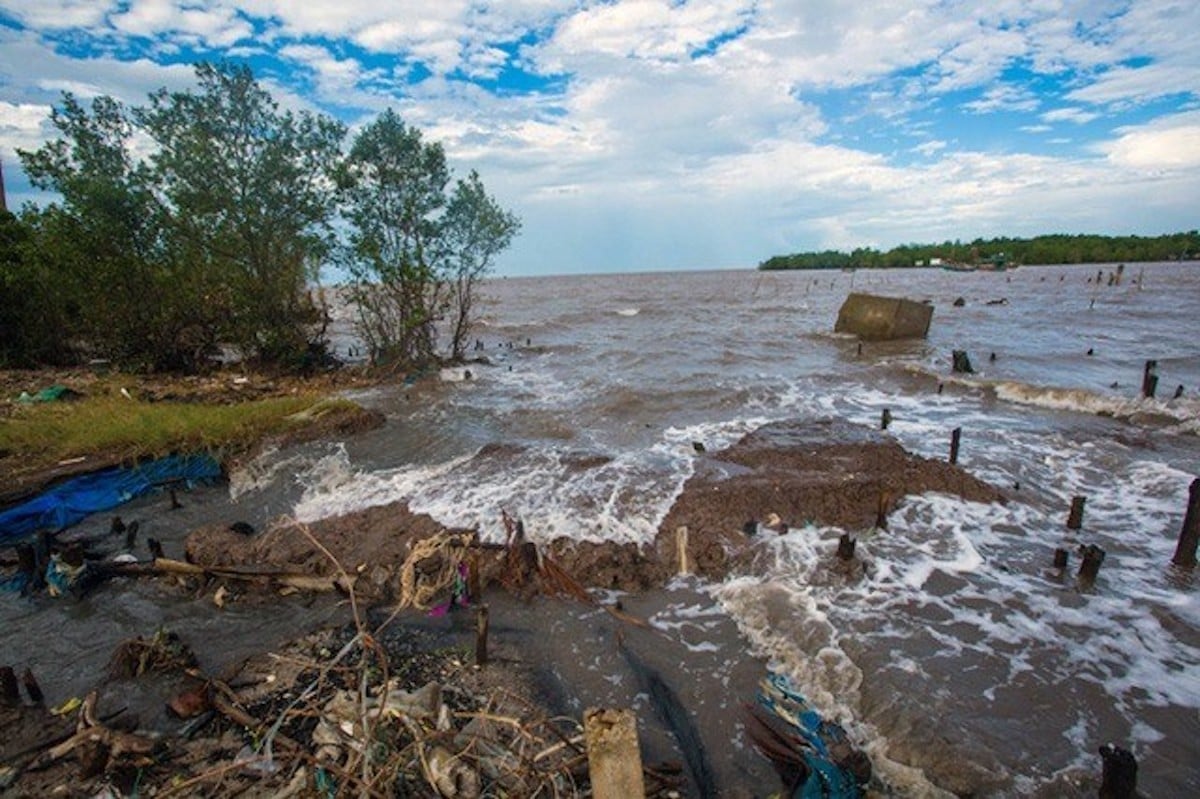The Mekong Delta is home to nearly 18 million Vietnamese people, and is the most important rice field and fishing region of the country.
Vietnam cannot afford to lose it as an agricultural powerhouse, but may be unable to stop just that happening.
A recent study conducted by the Agence Francaise de Developpement (French Development Agency – AFD) and the European Union (EU) found that the Mekong River’s sediments arriving down the Cuu Long Delta fell from 65 to 75 percent compared to the total in the 1990s, and by half over the last few years.
This sediment shortage was mostly caused by human activities in the river’s upstream, with hydropower plants sprouting up despite the protests of downstream countries like Cambodia and Vietnam. Vietnam’s own rampant sand mining in the delta’s rivers only exacerbated the situation.
The study gave a bleak forecast: the Mekong Delta is very likely to receive between 10 and 20 percent of the nutrient-rich sediment compared to what it used to get in the last century once all the hydropower plant projects on the Mekong River are finished.
The study also estimated losses of about 15.8 trillion VND (702 million USD) a year to Vietnam’s economy due to a severe decline in agriculture and fisheries. The revenue of companies in the region could be cut by up to 50 percent, the study suggested.
Hydropower dams in the upstream of the Mekong River not only trapped sediment but also blocked fish from freely migrating downstream to the Mekong Delta.
It was found that existing dams have already cost about 50 percent of fish stocks in Vietnam and Cambodia, while as many as 10 percent of fish species would disappear from the rivers in the two countries.
The huge loss of sediments was wrecking havoc on river banks and coastal lines in the south of Vietnam, with erosion and subsidence occurring at faster rates than ever before.
“Subsidence in the Cuu Long Delta was widespread and particularly worse in the lowland,” said Dr Van Pham Dang Tri from Can Tho University, located in the city of the same name in the Mekong Delta.
Agriculture and Rural Development deputy minister Hoang Van Thang said that the sediment loss stopped the build-up and expanding process of the delta.
“Due to that, we now witness the opposite process – sea encroachment in which more and more land has been lost. It is happening too fast,” he said.
He believed the unsustainable development in the Mekong upstream played a big role in the mass subsidence taking place in the Cuu Long delta.
“But the unsustainable development in the delta itself, for example the rampant sand mining or the overexploitation of underwater, was also very alarming,” Thang added.-VNA





